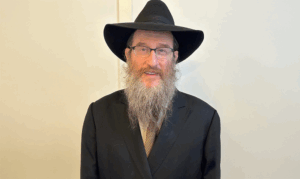Answers to your questions about life, religion and the Bible
Annulment of a marriage
Dear Father Paul: As I send you this email, Pope Francis, whom I greatly admire, is visiting the United States. A couple of weeks ago I remember a story in the news about how he had moved to make the annulment of a Catholic marriage easier, quicker and cheaper. I am not a Roman Catholic but I wonder … how can a sacrament, once it is done, be undone, especially if there are children born to that marriage? It seems like the Church is trying to do the impossible … almost like un-ringing a bell. — Ted.
Dear Ted: An annulment or nullification of a marriage can be granted by either a civil court of law or by a church court established for that purpose. There are a number of reasons why an annulment can be granted … some of which I will list later. But here I will discuss only annulments granted by the Church.
When I say “Church,” I mean sacramental / liturgical churches. Most Protestant churches do not grant marriage annulments.
Please keep in mind that the annulment of a marriage, and a divorce are not the same things.
The “annulment” of a marriage by the Church involves a declaration by the Church that a valid marriage sacrament never took place. In other words (to answer your point) “the bell” was never rung to begin with.
A divorce, on the other hand, involves a declaration by the civil government that a valid marriage is hereby dissolved and has ended. Children, born to a couple, whose marriage is later annulled, are considered legitimate by the church and by the civil government.
When a couple contemplates marriage, one of the first things they must realize is that by law their marriage must first involve the civil government to the extent that a valid marriage license must first be procured before anything else can happen. Once a marriage license is granted, the couple has a limited time period to undergo either a civil ceremony officiated by a judge or other government official, or, a religious ceremony officiated by a member of the clergy of any recognized religious body. A ceremony by either one or the other is mandatory. Once the ceremony is held and the license is signed by the person who conducts the ceremony, the couple is married.
If the ceremony was entirely civil, annulment of the marriage by the Church is extremely rare since the Church is loath to get involved in civil matters, plus no Church sacrament was involved in the ceremony. The couple would simply seek a civil annulment and/or a divorce. If, on the other hand, the marriage ceremony was conducted by the clergy of a sacramental church that grants annulments, an annulment by the Church can be sought. In the latter case the couple may or may not also seek a civil divorce. However, a civil divorce would be required by law before either party could remarry.
So what are the things that are needed, in the eyes of the Church, before the Sacrament of Holy Matrimony can be annulled or invalidated?
Basically, it usually comes down to whether or not the marriage was originally, at the time it was solemnized by clergy, lacking one or more of the essential elements required to make the sacrament of marriage valid. There are a number of things that can bring about the approval of an annulment by the Church, but they mostly all boil down to the fact that the marriage was in some way entered into under false pretenses. For instance, if one or both parties were already married to another person at the time the marriage was solemnized, an annulment could be granted. Other reasons are: (at the time of the marriage ceremony) mental incapacity, fraud, forced consent, inability by either party to physically consummate the marriage, lack of consent or an underage party to name a few.
All of this is to emphasize, Ted, as the pastor or priest will usually declare to the couple and the congregation at the beginning of the marriage ceremony “… marriage is not to be entered into unadvisedly or lightly, but reverently, deliberately, and in accordance with the purposes for which it was instituted by God. If anyone knows why this marriage should not take place, let him come forward now.”
Do you have a question? Email it to me at [email protected] and I will try to answer your question in the paper.
Father Paul Massey is pastor emeritus of Church Of The Holy Cross Charismatic Episcopal Church in Fayetteville, Georgia. Visit us at www.holycrosschurch.wordpress.com for more information, service times, directions and recordings of Sunday messages.











Leave a Comment
You must be logged in to post a comment.